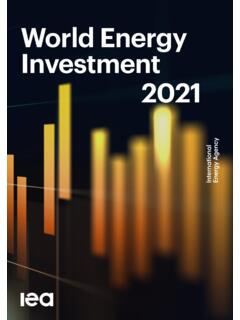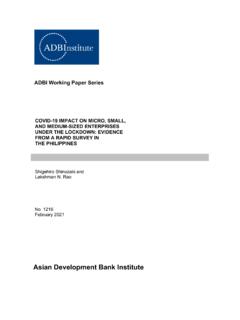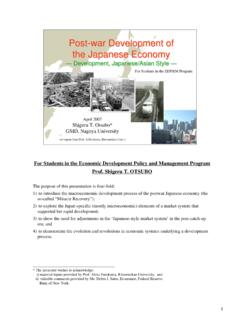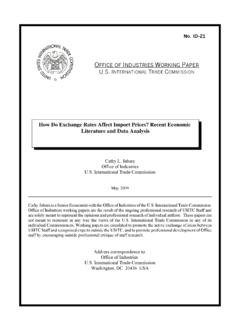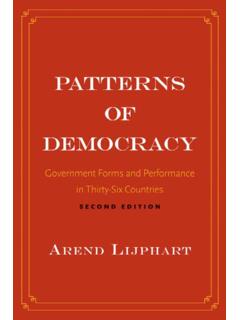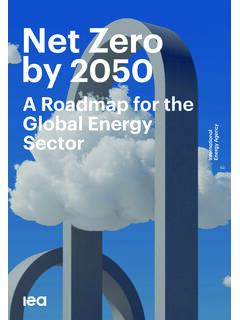Transcription of THE GREAT RESET Evergrande and the Final Meltdown of the ...
1 THE GREAT RESET Evergrande and the Final Meltdown of the Global Financial System Primary Analyst: Dr. Marco Metzler, Berlin Co-Authors: Michael Ewy, Berlin Duc Dam, Berlin RESEARCH REPORT Berlin, , Page 2 Table of Contents 1. What to know about Evergrande ? 3 2. What is Evergrande 's business model? 3 3. Why is Evergrande in trouble? 4 4. What kind of issue is Evergrande exactly in? 4 5. Does the crisis also affect other groups? 5 6. What is the Chinese government doing about it? 5 7. What do the rating agencies say about Evergrande ? 6 8. Who are Evergrande 's creditors? 6 9. What other problems are there in China? 14 10. What does our analysis tell you?
2 14 11. Sources 16 Presse contact 17 , Page 3 1. What to know about Evergrande ? China Evergrande Group is the country's second largest real estate developer by revenue, is headquartered in Shenzhen, China, and employs approximately 200,000 people with projects in over 170 Chinese cities. Since its founding in 1996, Evergrande Group has also grown into a sophisticated conglomerate with other business activities outside the real estate sector. The company's chairman and founder, Hui Ka Yan (also known as Xu Jiayin) took the company public on the Hong Kong Stock Exchange in 2009 and has since developed the group in areas including electric cars, theme parks, the healthcare sector and food.
3 For example, with its electric car subsidiary China Evergrande New Energy Vehicle, the group even aims to become the largest electric car manufacturer in China with 24 models by 2025. So far, however, not a single electric car has been sold. According to the business magazine "Capital", 248 other companies are now subsidiaries of the group or intertwined with it. 2. What is Evergrande 's business model? Evergrande 's business model is simple. "Capital" describes it as follows: The company buys land in China's major metropolitan areas, builds properties there, and then resells them. As a rule, the sale of completed real estate finances the purchase of new land.
4 However, according to Capital, Evergrande 's sales and development projects have increased twelvefold in the last ten years, and the number of ongoing projects is steadily increasing. Since sales are not enough to finance the enormous growth, the group finances itself through borrowed capital in the form of loans, bonds, and large down payments from customers. Economist Professor Peter Seppelfricke tells "Capital" that Evergrande 's business model is based on a very shaky assumption. In Seppeflfricke's view, real estate buyers assume that prices will continue to rise due to the sustained growth in demand and are therefore prepared to put down a large down payment.
5 However, if the real estate boom slows down, as seems to be the case now, this business model can no longer be sustained. , Page 4 3. Why is Evergrande in trouble? The reason for Evergrande 's difficulties is that the company and other Chinese real estate developers finance their astronomical growth mainly with debt, creating a kind of Ponzi scheme. According to Capital, banks are aware of the problem, which is why they are charging the group higher interest rates, which makes the issue of high debt even worse. In addition, the Chinese government dealt a heavy blow to Evergrande and other real estate groups by severely restricting their lending through new regulations.
6 Because of this, Evergrande 's business model collapsed almost overnight, as the group could no longer take on new debt to finance its operations or repay existing debt. 4. What kind of issue is Evergrande exactly in? Evergrande has debts of around 300 billion US dollars, which is roughly equivalent to Finland's national debt. According to the respected Chinese business magazine "Caixin", the group will have to raise a total of as much as 106 billion euros for interest and repayments within the next twelve months. Whether this will be possible is rather doubtful, as the company has already missed the interest payment deadline for bonds traded in US dollars.
7 Evergrande 's chief executive, Hui Ka Yan, is currently focusing on servicing bonds in China's domestic market, fearing turbulence, according to the Chinese Business Journal. In September, for example, the group was still servicing $ million in coupon payments on onshore bonds traded in Shenzhen. On Oct. 23, 2021, Evergrande faced an important deadline that could have led to the group's immediate bankruptcy in a worst-case scenario. The group failed to pay interest on its first dollar bond on Sept. 23 this year. Since then, a 30-day grace period has been in effect, which ended on Oct. 23. According to media reports, this was paid, but the next overdue interest payment is due on October 29 and the next but one on November 10.
8 If Evergrande becomes insolvent, countless Chinese will have to worry about the money they spent on the company's unfinished real estate projects, for example. , Page 5 5. Does the crisis also affect other groups? The Chinese government's strict borrowing rules have also caused problems for other real estate groups. Sinotech Holdings, for example, was unable to pay the coupon on its bonds due Oct. 18. In addition, construction company Hyundai Land plans to request a postponement of the maturity of its bonds due Oct. 25. Meanwhile, real estate company Fantasia has restricted trading of its bonds. They will now no longer be traded on the stock exchange.
9 Previously, $206 million of the company's bonds had been overdue. However, this did not come as a surprise to many investors, who feared the collapse of the Chinese real estate company, which had grown through financing over the years, according to the German news agency. But it's not looking good for real estate companies, as investors are increasingly concerned that the bubble in the Chinese real estate market is in danger of bursting. 6. What is the Chinese government doing about it? As the Chinese government attempts to clean up the highly speculative real estate market through the "three red lines", it is now considered unlikely that the government will rush to rescue Evergrande as a real estate group.
10 These state that, 1. the ratio of liabilities to assets must be below 70%. 2. construction developers can have a maximum net debt ratio of 100%. 3. the ratio of cash to short-term debt must not fall below a certain limit. However, in mid-October, it became known that the financial regulator had ordered in September that some major banks accelerate their lending for real estate in the third quarter. It also reportedly allowed the sale of some bonds based on real estate loans. These have been banned since the spring to reduce the domino effect in the real estate sector. , Page 6 7. What do the rating agencies say about Evergrande ?
